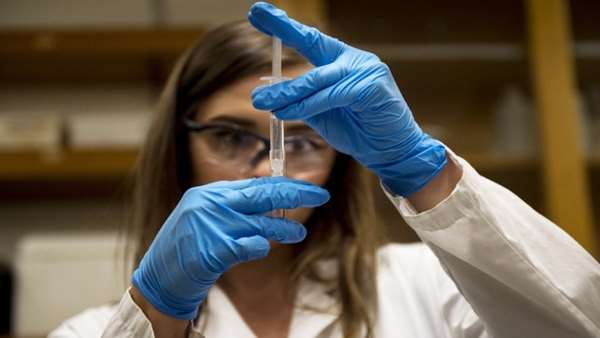NIH Reverses Limits on Human Fetal Tissue Research
The National Institutes of Health announced April 16 that it is rescinding limitations on fetal tissue research put in place by former President Donald Trump.
The National Institutes of Health announced April 16 that it is rescinding limitations on fetal tissue research put in place by former President Donald Trump.
The agency’s notice about the change states that the NIH will no longer convene the Human Fetal Tissue Research Ethics Advisory Board to review new external grants and proposals using fetal tissue, but continues to require that researchers obtain consent from donors, do not pay for such tissue, and follow any state laws governing the research, Politico reports.
See “Scientists Grapple with US Restrictions on Fetal Tissue Research”
Fetal tissue has become a politized topic in biomedicine because it is most often collected during elective abortions. Such tissues have been instrumental to research on everything from virology to the developing brain. Fetal cells have also been used to develop treatments and therapies for a variety of diseases, including Parkinson’s disease, Zika, HIV, and even COVID-19. The monoclonal antibody therapy that Trump received while hospitalized with his own bout of the disease was developed using fetal tissue.
In 2019, Trump banned the NIH from funding work by government scientists that relied on fetal tissue. While the ban did not extend to nongovernment laboratories such as those at universities, the order did impose new restrictions on their work. Grant proposals and contracts submitted to the NIH that planned to use fetal tissue were subjected to an additional layer of ethical review in the form of an advisory board filled with opponents of abortion, The Washington Post reported at the time. The board, which convened only one time last August, rejected 13 of the 14 proposals it reviewed.
See “Most Members of Federal Fetal Tissue Ethics Panel Oppose Abortion”
The 2019 changes “impacted almost all of the facets of the lab,” Carolyn Coyne, a microbiologist at the University of Pittsburgh who uses fetal tissue to study how viruses penetrate the placenta, told The Scientist last year. Scientists were forced to seek private donations of tissue or pivot to other systems, such as induced pluripotent stem cells derived from adults, to continue their science.
In some instances, projects were shelved over expectations that they would never pass review. “If I spend hours writing a grant that I think is really good science, and I send it to NIH . . . it’s going to get stuck there,” Anita Bhattacharyya, a stem cell scientist at the University of Wisconsin-Madison’s Waisman Center, told The Scientist a year ago. “We’re so busy as scientists that to just write a grant that isn’t going to go anywhere is a waste of our time.”
This January, more than 100 scientific organizations wrote to President Joe Biden asking him “to swiftly rescind the human fetal tissue (HFT) research restrictions and policy changes.” In a House hearing on Thursday (April 15), Health and Human Services Secretary Xavier Becerra hinted that such an announcement might be forthcoming, saying, “We believe that we have to do the research it takes to make sure that we are incorporating innovation and getting all of those types of treatments and therapies out there to the American people.”
In a statement sent to The Scientist, the International Society for Stem Cell Research (ISSCR), the largest professional organization of stem cell researchers, praises the lifting of what it calls “arbitrary restrictions,” adding that research funding should be based on “the scientific and ethical merit of each proposal. The ISSCR welcomes the return to evidence-based policymaking.”
In a statement, 26 House Democrats say the NIH’s reversal is “an integral step towards protecting the advancements of our scientific community,” The Hill reports.
Anti-abortion advocacy groups have decried the reversal. “There are superior and ethical alternatives available such as adult stem cell models being used by countless scientists worldwide to develop and produce advanced medicines treating patients now, without exploitation of any innocent life,” Tara Sander Lee, the director of life sciences at the Charlotte Lozier Institute, an anti-abortion nonprofit, tells Roll Call.




ارسال به دوستان